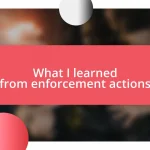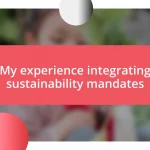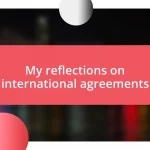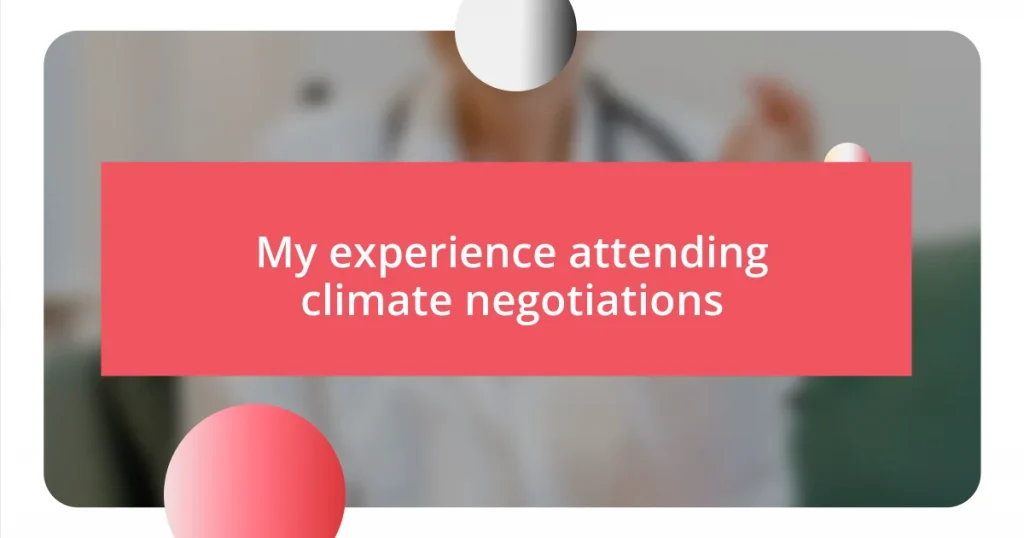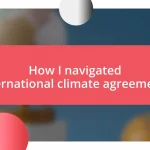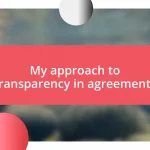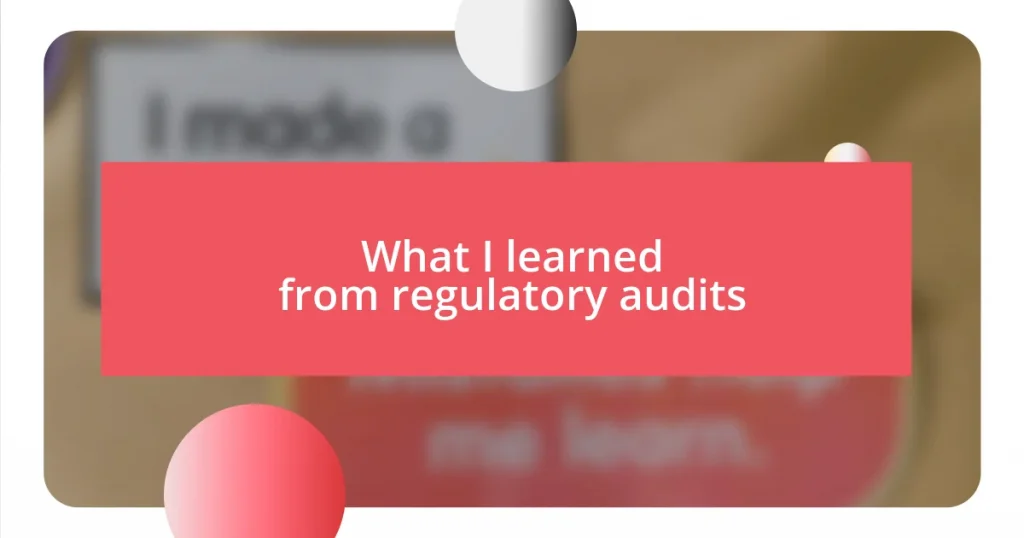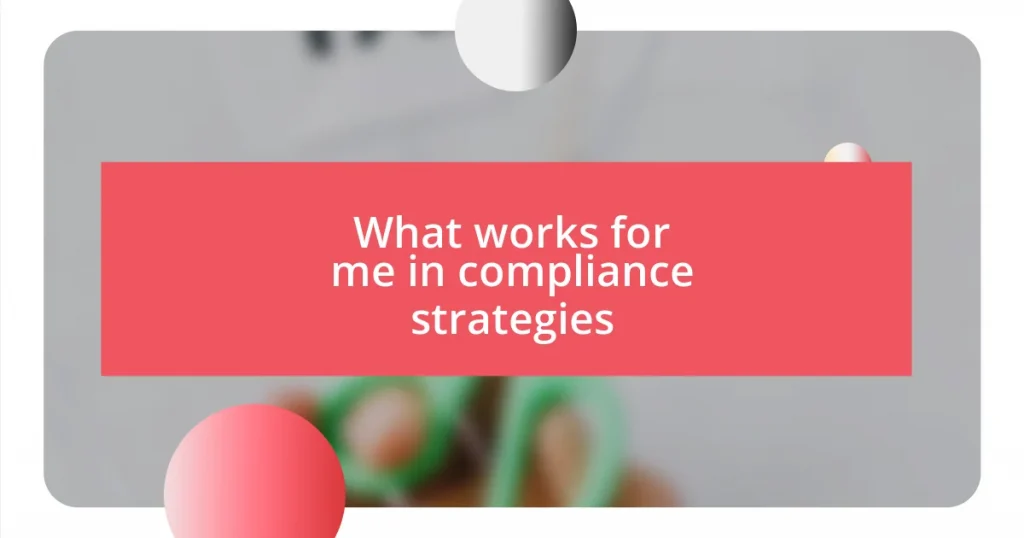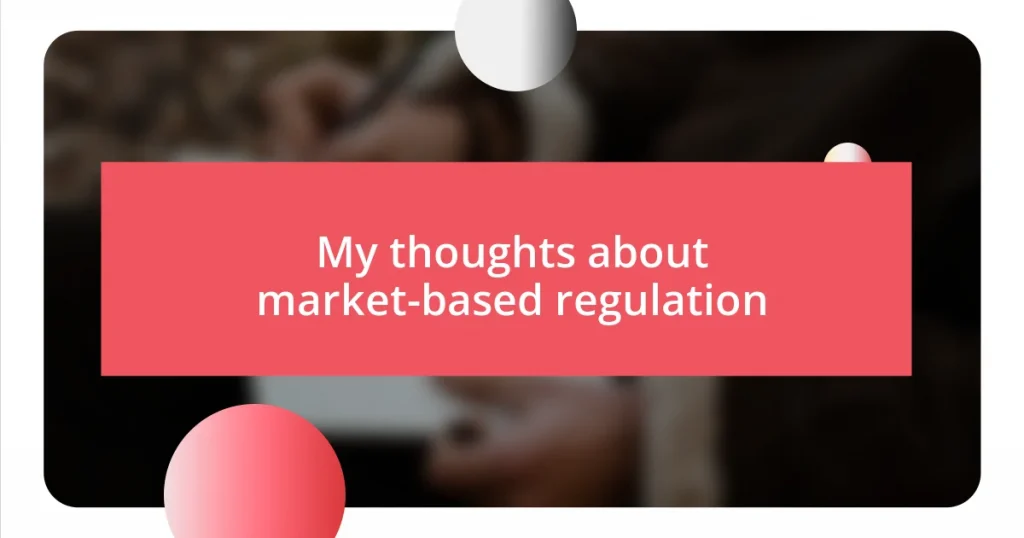Key takeaways:
- Attending climate negotiations emphasizes the emotional and human aspects, as delegates advocate for communities facing immediate threats from climate change.
- Effective preparation involves thorough research, team building, and emotional connection, which enhance one’s ability to advocate during negotiations.
- Networking and post-negotiation follow-ups are crucial for fostering collaboration, sustaining momentum, and creating opportunities for continuous dialogue on climate issues.
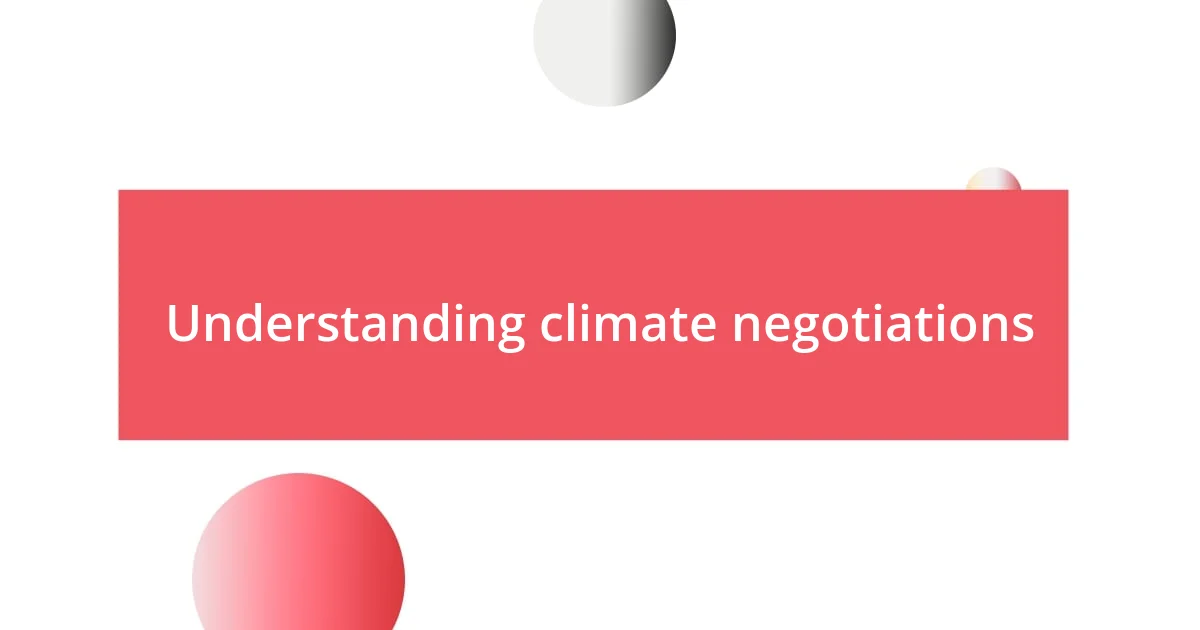
Understanding climate negotiations
Climate negotiations can feel like a complex maze to navigate. I remember my first experience attending one; the room buzzed with passionate advocates from around the world, each representing unique perspectives. It struck me—how could so many divergent voices find common ground to tackle such an enormous challenge?
In these negotiations, every word matters. As I listened to delegates present their views, I felt a mix of hope and frustration. I often wondered: how can we effectively balance economic growth with environmental protection? Some countries emphasize economic strategies, while others push for urgent climate actions. It became evident to me that achieving consensus requires not only data but a deep understanding of the values and fears driving each nation’s stance.
The emotional toll of these discussions is palpable. I observed vivid debates where the stakes felt incredibly high; lives and livelihoods were on the line. Witnessing the passion in people’s eyes makes you reflect on the urgency of the issue. Each negotiator carries not just their nation’s agenda but also the weight of their people’s aspirations for a sustainable future. Isn’t that what makes these negotiations so crucial?
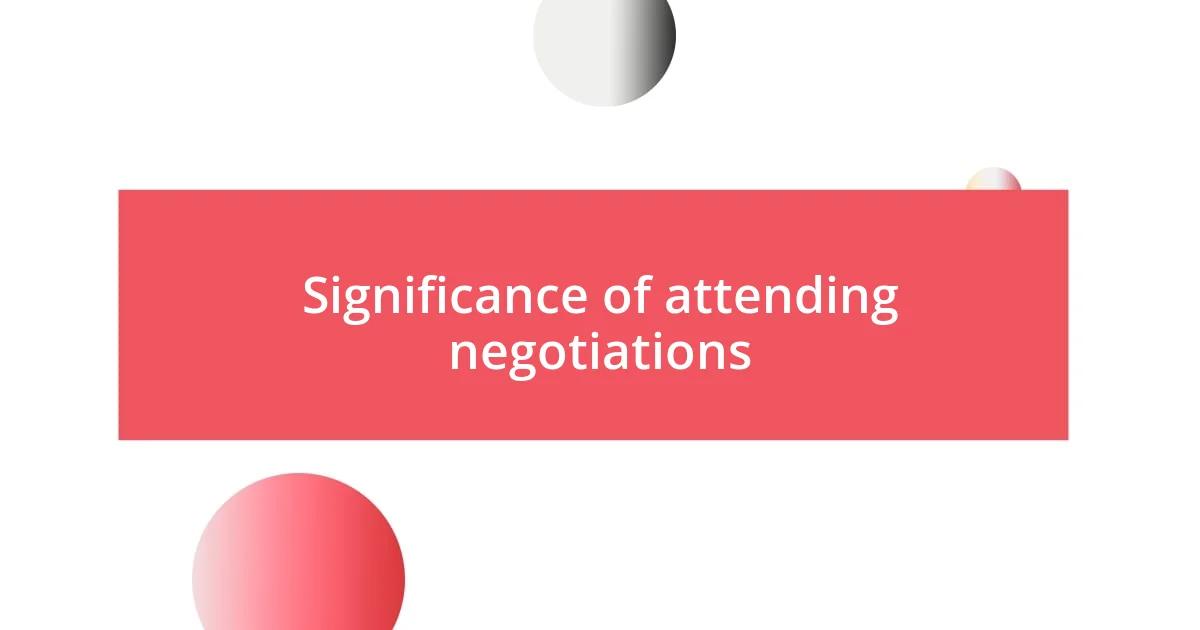
Significance of attending negotiations
Attending climate negotiations is fundamentally significant for several reasons, and I felt that importance firsthand. Every time I stepped into those meeting rooms, I realized it wasn’t just about policies; it was about people—all advocating for their communities, many of whom face immediate threats from climate change. I recall exchanging thoughts with delegates from island nations, where rising sea levels threaten their very existence. Their stories drove home the urgency of the negotiations, highlighting that these discussions have real-life implications beyond just numbers and debates.
Here are a few key aspects that underscore the significance of attending these negotiations:
- Building Relationships: Networking with representatives from diverse backgrounds fosters collaboration that can lead to innovative solutions.
- Gain Insight: Understanding different national priorities enriches one’s own perspective and enhances negotiation strategies.
- Emotional Connection: Witnessing the passion of others creates a stronger drive to advocate for meaningful change.
- Firsthand Experience: Being in the room allows for observing negotiations that shape global climate policies, essential for anyone committed to environmental advocacy.
For me, these reasons transformed what could have been a sterile process into a powerful, emotional journey that fueled my commitment to the climate cause.
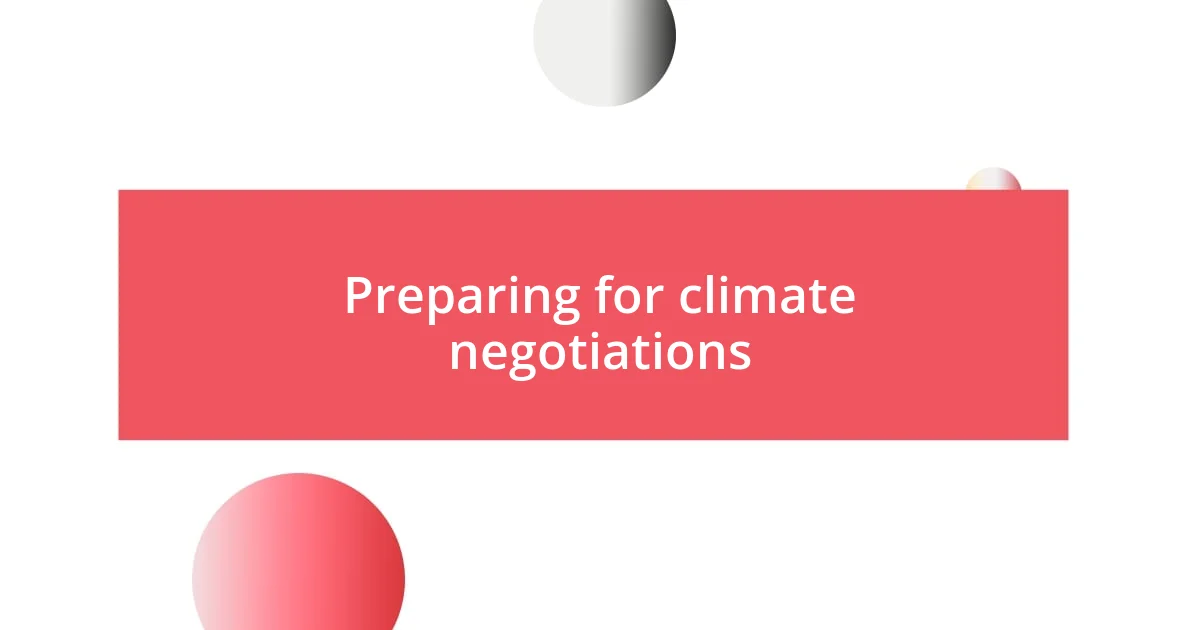
Preparing for climate negotiations
Preparing for climate negotiations takes more than just a grasp of the issues at hand; it requires a thorough understanding of the political landscape. I vividly remember the weeks leading up to my first negotiation—I’ve never done so much research in my life! I studied each participating country’s position papers, which was like peeling back layers of an onion. Each layer revealed nuances in their policies, needs, and prior commitments. I’m convinced that knowing these details transformed my approach from merely a participant to an informed advocate.
Equally important is assembling the right team. When I attended, I was fortunate enough to have experts from various fields in my corner. This diverse group helped me navigate complex topics, from carbon emissions reduction to sustainable agriculture. Collaborating with others often sparked ideas I would have never considered alone. Plus, when navigating heated discussions, having a supporting team felt like having an anchor amidst the turbulent seas of debate.
Emotional preparation cannot be overlooked either. Before stepping into negotiations, I had many heart-to-heart conversations with people directly affected by climate change. Listening to their stories—like that of a farmer whose livelihood was threatened by shifting weather patterns—deeply moved me. It reminded me why I was there, and that emotional connection strengthened my resolve, enabling me to advocate fiercely during discussions.
| Preparation Aspect | Description |
|---|---|
| Research | Studying countries’ positions to grasp their political landscape and priorities. |
| Team Building | Assembling a diverse group of experts to enhance understanding and support during discussions. |
| Emotional Insight | Connecting with affected individuals to fuel passion and motivation during negotiations. |
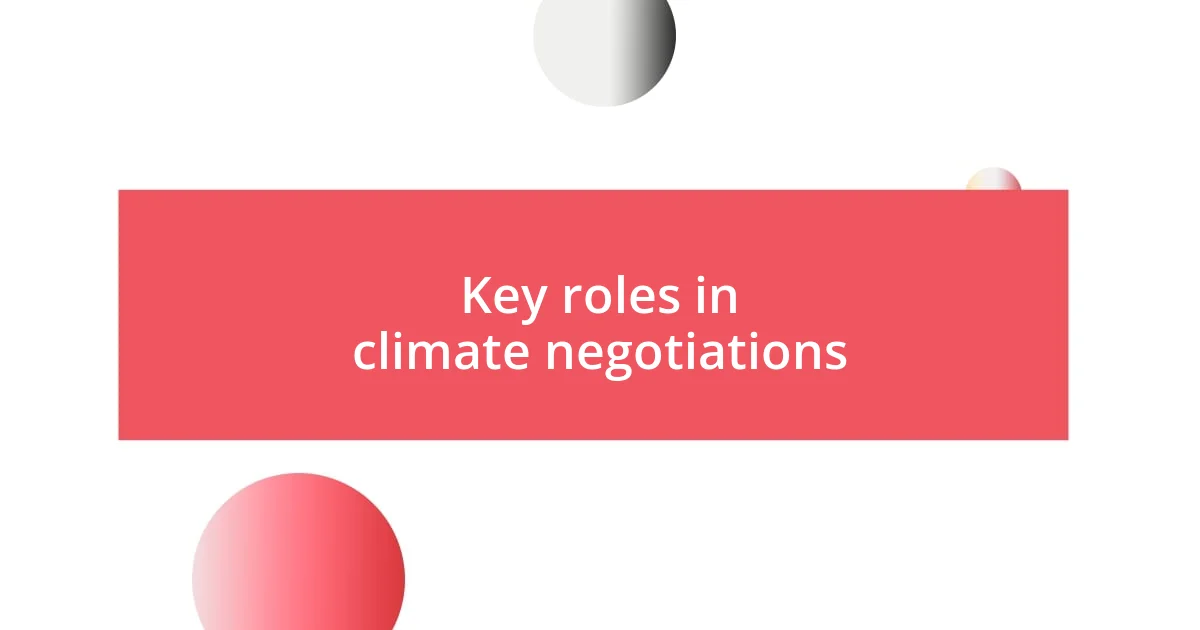
Key roles in climate negotiations
In climate negotiations, I quickly learned that diplomats play a pivotal role. These individuals possess the skills to navigate complex political waters while advocating for their countries’ interests. I remember a particular session where a seasoned diplomat effortlessly transitioned discussions from conflict to collaboration, reminding us all that sometimes, a simple shift in tone can change the course of a negotiation. Their ability to empathize, while remaining firmly rooted in their objectives, often set the stage for fruitful dialogue.
Conversely, NGO representatives bring a passionate voice that cannot be overlooked. At times, their fervor was palpable during discussions, as they articulated the real-world impact of climate policies on vulnerable communities. I can still vividly recall a moment when a representative from a local organization shared powerful testimonials from families struggling with increasing temperatures. It was as if the entire room paused to absorb the weight of their words. How could we not be moved? Their input often ignited a fire within the room, pushing delegates to remember that behind every statistic lies a human story.
Finally, scientists and researchers offer the evidence-based insights that ground our discussions. During my time at these negotiations, I saw how their data informed debates and influenced decisions. It was particularly striking to witness a scientist present research on melting glaciers. As she detailed the implications, I couldn’t help but feel a sense of urgency rise in the air. Having experts translate complex scientific findings into accessible narratives is crucial. It reminds us that we are not just negotiating; we are shaping our planet’s future.
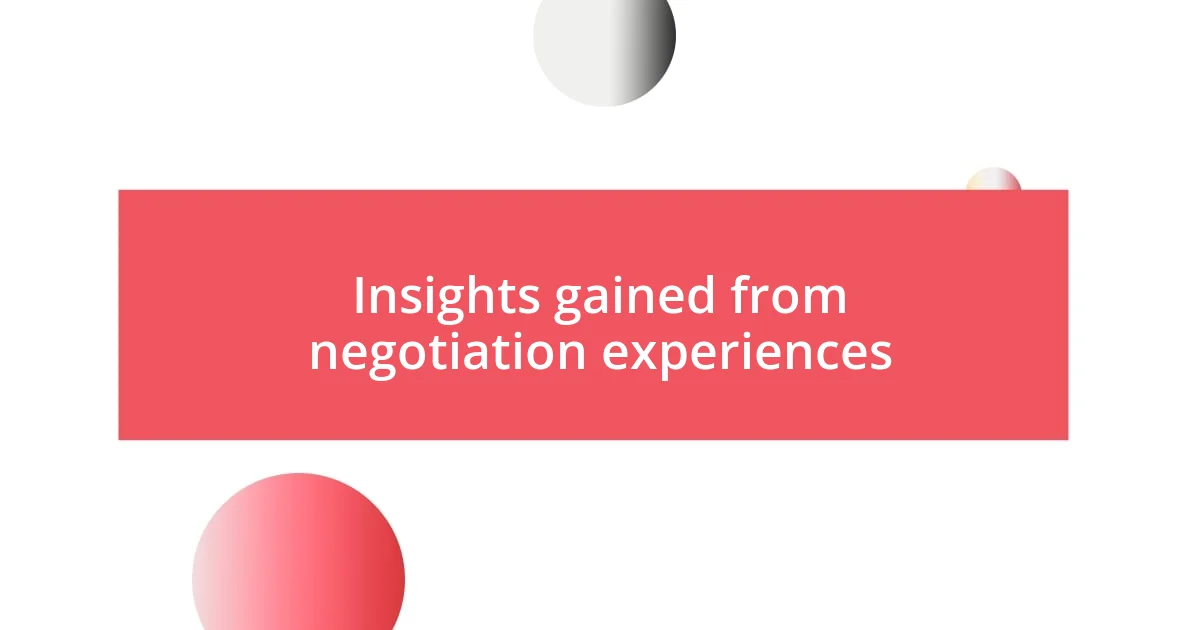
Insights gained from negotiation experiences
Navigating the negotiation room taught me that flexibility is just as essential as preparation. I recall a moment when one proposal was met with resistance, and instead of digging in my heels, I suggested a compromise. The atmosphere shifted dramatically. This simple act of adapting my stance not only opened up the dialogue but also fostered a sense of collaboration. Isn’t it fascinating how a willingness to bend can pave the way for progress?
One of the most profound insights I gained was understanding the power of storytelling. During a breakout session, a delegate shared her community’s struggles with rising sea levels. As she recounted the family’s decisions on whether to relocate, I felt an emotional weight settle over the group. It drove home the impact of our discussions in a way statistics never could. I realized then that our conversations needed the human element to truly resonate. How often do you think we forget that behind every policy, there’s a person affected by it?
Finally, I recognized the importance of building personal connections. I still remember the late-night conversations with colleagues over shared frustrations and hopes for the future. These intimate exchanges strengthened our resolve as a collective voice. When we approached the negotiation table, it felt less like a battleground and more like a united front. Doesn’t it make you wonder how those genuine relationships can transform a negotiation’s dynamics?
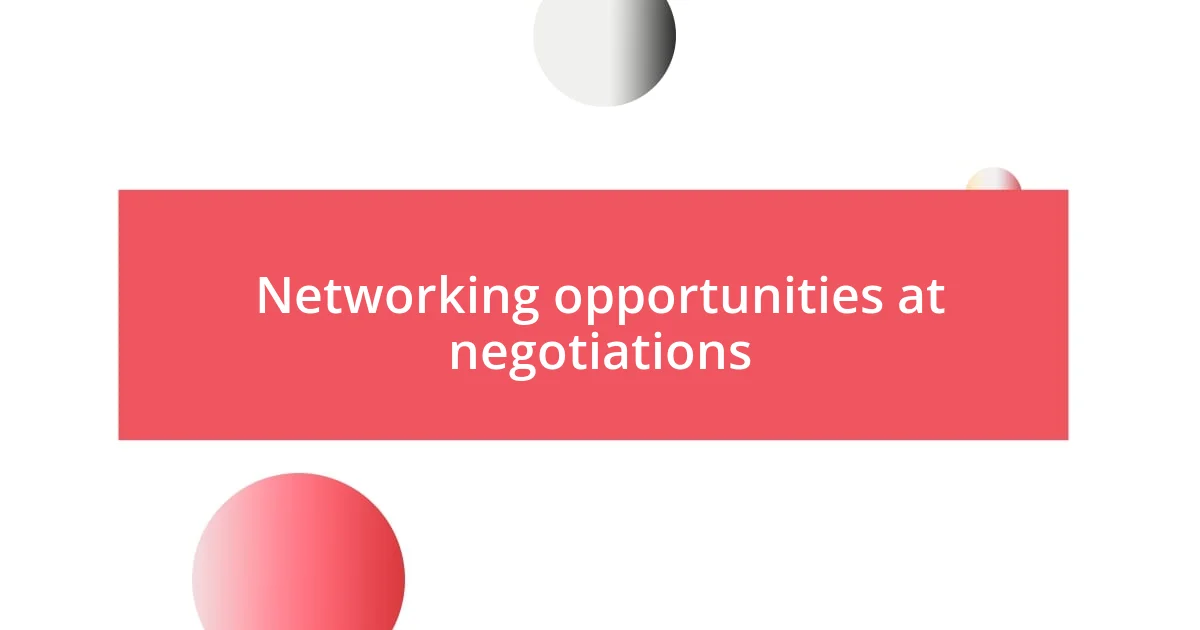
Networking opportunities at negotiations
The networking opportunities at climate negotiations often catch me off guard with their depth and unpredictability. I found myself connecting with diverse individuals over coffee breaks and corridor conversations that felt like goldmines of information. One day, I sat beside an activist from a remote island nation and ended up hearing firsthand accounts of the threats their community faced. That conversation opened my eyes, but more importantly, it sparked a collaboration idea that later became part of our collective proposal.
As I mingled during receptions, I realized that casual interactions can often lead to profound alliances. I remember chatting with a researcher who had groundbreaking insights about carbon capture technology. It wasn’t just the facts and figures that fascinated me; it was his enthusiasm that made me want to learn more. By sharing contact information, I transformed a brief moment into a lasting connection that later enriched my understanding of the science behind our negotiations. Isn’t it extraordinary how a simple conversation can cultivate such impactful relationships?
Furthermore, I witnessed how these networking moments could catalyze change. During one event, I noticed several delegates clustered around a laptop, engrossed in a presentation about a new proposal. I took the opportunity to join them, and through our discussion, we not only refined our arguments but also formulated a combined strategy for our respective countries. Reflecting on that moment, I can’t help but wonder: how many innovative solutions are just waiting to be born from these spontaneous interactions?
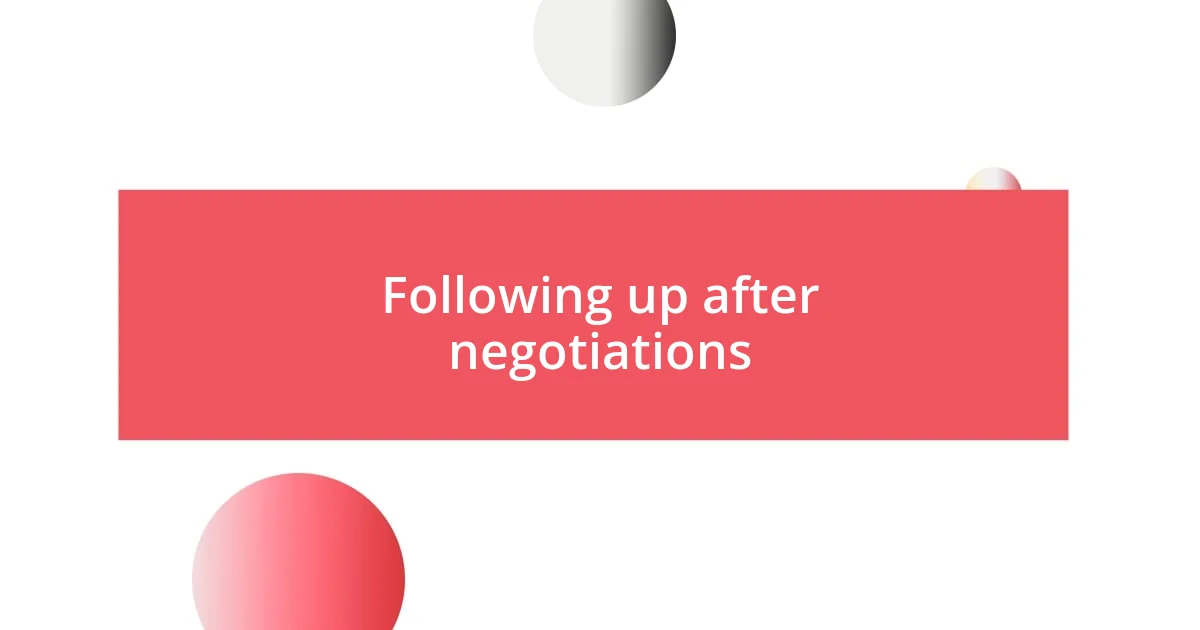
Following up after negotiations
After the dust settles from negotiations, the follow-up process becomes crucial in sustaining momentum and building upon what was discussed. I vividly recall the days following one intense round of discussions when I gathered my notes and reached out to fellow delegates. It was exhilarating to share reflections over email, reinforcing our commitments to action. This small step not only solidified our connections but also helped clarify tasks and expectations moving forward. Have you ever thought about how such simple gestures can amplify collective efforts?
I learned that organizing regular check-ins can be a game-changer. Instead of waiting for the next conference, I initiated a monthly online meeting with a few colleagues to track our progress and share ongoing developments. This proactive approach fostered accountability and enabled us to adapt swiftly to new challenges. It’s striking how, in this fast-paced world, consistent communication can keep the fire alive in our collaborative efforts. Who would have imagined that virtual gatherings could create such a sense of community among individuals who once merely swapped business cards?
Moreover, reflecting on the negotiation itself can reveal unforeseen pathways for engagement. After one particular round, I took the time to analyze the debates and the dynamics at play. This introspection led me to propose a follow-up workshop, where we could dive deeper into unresolved issues. The excitement from my peers was palpable. It struck me then that sometimes the best way to build on negotiations is to create opportunities for continuous dialogue. How often do we overlook the potential of revisiting discussions to spark new ideas?






